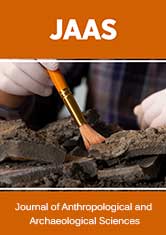Coping: Self-Deception in Action
When people interact with their environment, their behavior is directed by a schematic cognitive program. A particular act can be construed as “Intelligent” or “Stupid” depending upon the perceived degree of success achieved, but while these labels indicate opposite evaluations, they do not indicate different cerebral programs. Nor should stupidity be viewed as a disruption of an “Intelligence mechanism”. There is a coping (or responding) mechanism in action, and it can be construed as stupid and/or intelligent depending upon the circumstances and the judges. This coping mechanism is multidimensional, but we shall focus on three arbitrary/subjective facets important to understanding stupidity-information processing, (mal)adaptation and relevance [1]. Read more about this article: https://lupinepublishers.com/anthropological-and-archaeological-sciences/fulltext/coping-self-deception-in-action.ID.000113.php Read more Lupine Publishers Google Scholar art...




